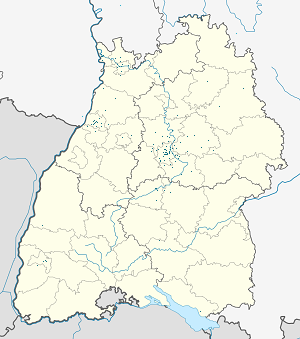Navrhovatel byl stažen
The following petition was written by students of the State Academy of Fine Arts Stuttgart. Although we refer to our academy in the text, we want to speak on behalf of all international students as well as second-subject students at the state colleges and Universities of Baden-Württemberg.
Almost all federal states in Germany make it possible for young people, regardless of their financial background, to study thanks to the education system they have in place. We think there is a very good intention behind this, and this is beneficial for future generations. However, in Baden-Württemberg, additional tuition fees are charged for non-EU foreigners and second-degree students.
Baden-Württemberg demonstrably suffers from a lack of skilled teachers in fine arts as well as in MINT subjects, such as physics and informatics. However, since 2017/2018, teachers as lateral entrants, who usually do not have a second subject, have been required to pay secondary tuition fees for a post-qualification. This is counterproductive and acts as a major barrier. The shortage can hardly be solved by further financial barriers. Instead, in the long run, fees will further worsen the teacher shortage.
Ask your children whether they are being offered enough professional teaching at school. Then try to understand why teachers as lateral entrants, who could fill this shortage, must pay additional fees to do so. In this way, potential teachers who would be an asset to the country in terms of education are punished with two-study fees. In addition, the younger generations, who are not only financially burdened during the Corona pandemic, are also penalised by teacher shortages. For these generations, the current politics, with the two-tuition fees it has introduced, is progressively destroying education as well as the prospect of sufficient teaching staff.
This conclusion suggests that current politicians are not interested in the future of this country. If they were interested, they would also be committed to the education of the younger generations. These politicians can neither offer nor want to train enough expert teaching staff.
German universities have an excellent reputation for teaching and research. The current laws of Baden-Württemberg show that the state government has special expectations of foreigners, who will be of great benefit to German society and the economy after their studies, in the university admissions process.
On the other hand, it cannot be overlooked that Bachelor’s and Master’s graduates, as members of society, contribute directly or indirectly to the enrichment of German society and economy.
International students who came to Germany to complete their degrees later either stay in Germany or return to their home countries. If the latter is the case, they bring the education and their experiences back home with them. In this way, even those who otherwise had no chance to study abroad can receive a solid education. This step is particularly beneficial for development aid and global environmental technologies and helps the young generation to improve the world. In addition, German teaching and research gain further reputation as a result.
When international students stay in Germany after graduation, the German economy benefits from them. They enrich German science, art and research. Ultimately, this positive development leads to new innovations as well as cultural enrichment and finally to an increasing reputation for Germany as a development location.
For example:
Hae-Gue Yang also came to Germany for her studies and is now a professor at the Städelschule in Frankfurt. She also runs a large workshop with many employees.
The students at the State Academy of Fine Arts Stuttgart also benefit from the teaching of international professors, lecturers and workshop leaders, from their cultural backgrounds and their specifically related craft skills and experiences. We students have thus been able to learn international techniques in workshops and thus realise our artistic ideas.
Odůvodnění
The high tuition fees make it very difficult for us non-EU foreigners and second-study students to access education and, depending on our financial background, deny us access to education completely. The fees become a financial burden for many. Every re-registration deadline means stress and fear of being exmatriculated if they can no longer pay the fees in the winter semester 20/21.
Furthermore, the additional fees create a feeling of non-belonging. This is the beginning of an unfairness, insofar as those who already have more through financial security have more opportunities. An unfairness that cannot be accepted under any circumstances.
We would like to comment on both the injustice of the tuition fees and the idle behaviour of the government. Here are the reasons why the additional tuition fees should be stopped and moreover, fully refunded for the period of the pandemic.
1. We learn throughout our lives, from birth to death. Therefore, the beginning of life is the beginning of education. However, if education itself is unfair, because different financial conditions apply to the same education, life also turns out to be unfair. Those who fall into poverty, without free access to education, are denied the chance to free themselves from the snares of poverty. Injustice in education must neither be supported nor accepted.
2. Why must education be equitable? Horace Mann justified this by saying that education is "a great equalizing instrument". A society in which everyone can receive education and a social status that matches their abilities is not a class society, in fact it is an equal society. Thus, free education is the best means to balance financial disadvantages. Equality in education thus becomes the most direct parameter for determining social equality, and to realize social equality, equality in education must be achieved. Consequently, there is no educational equality here in BW, as non-EU foreigners and second-year students must pay additional fees. Thus, no social equality can be achieved. The education policy in BW is a policy that separates Germans from non-EU foreigners.
3. Germany profits from the world as an exporter and German companies profit from the poorest countries of this world. At the same time BW does not want to share its education with non-EU foreigners who come from financially weak backgrounds. This policy is a contradiction for the governing party "Bündnis 90, Die Grünen", whose foundation is based on social values. If an ecological party wants to make the world more ecological, why does it deny people the education that would be necessary for ecological development?
4. If this country demands such an enormous amount of tuition fees, it can be concluded that it is only about welcoming money-earning non-EU foreigners and not about their abilities.
5. A human being cannot exist alone. All people depend on each other. It is the same in our society. Since all groups in society are interconnected, we also share responsibility for the social construction process. However, the process begins with education. That is why the country also bears social responsibility in its education policy. Germany maintains not only political and economic relations with the EU, but also with other countries around the world.
6. Secondary students fill the places of interface disciplines and can become of great importance for society. Examples include medicine and physics in clinical settings and any subject combinations in teaching professions. However, this potential is undercut with the additional fees.
7. Although we have had very limited study, with significantly fewer courses offered, since the first lockdown in the summer semester of 2020, we have still had to pay the full tuition fees. A partial refund of the fees was only approved for the winter semester 20/21, through an extremely difficult application process. This means that the government is perfectly capable of refunding these fees but does not want to do so for the summer semester, of exactly these hard times. We would like to criticize this idle behaviour. It is simply inhumane to impose ¾ of the additional fees on students during the pandemic, without offering adequate teaching. This unfair university fee system cannot simply remain unchanged. Otherwise, it runs the risk of becoming more widespread and producing a discriminatory society with a weak education system. However, there still seems to be a way to improve the situation. Because in this way we can raise our voice to point out problems and demand changes.
Sincerely,
Hyein Kim, Junho Jeong & Frank Orth
Supporting professors: Prof. Cordula Güdemann and Prof. Volker Lehnert
Odkaz na petici
Tato petice byla přeložena do následujících jazyků
rozprava
Zatím žádný argument CONTRA.

